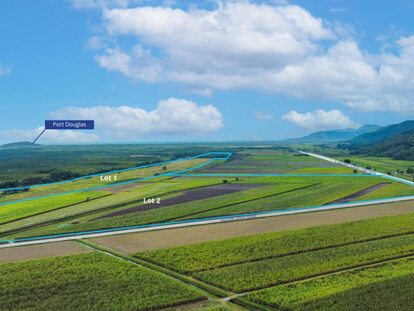Looking a little closer at the Liberal Party
CRISPIN HULL COLUMN

There has been a fair amount of picking over the entrails of the Liberal Party after the election, including a lot of gazing at the navel.
It has been localised and introspective. A broader historical view might be more instructive for the Liberal Party and, indeed, for Labor and the Greens.
From the end of World War II until around 1980, a consensus had built up. Business liked stability and certainty and were willing to trade that for increasing regulation over how it dealt with labour, wages, the environment, safety, and competition. For steady, stable profits it was a price worth paying.
Then along came Thatcher and Reagan to introduce neo-liberalism and economic rationalism. It meant deregulation, self-regulation, user pays, privatisation, out-sourcing, and tax cuts for the wealthy.
The left-right politics bumbled along for a while, but basically across the democratic world the neo-liberal, economic rationalist view of the world won. Anything collective was denigrated, emasculated, and defunded – particularly unions; public education, housing and health; and utilities.
Thatcher famously said that there was no such thing as “society”, just individuals and the family. In short: atomise, depower, and control.
Even under Clinton, Blair, Hawke, and Keating, neo-liberalism and economic rationalism still won. They just called it the third way and were not as extreme as Thatcher and Reagan, but the result was the same.
The result, of course, was the replacement of what was branded inefficient, bloated, unresponsive public monopolies with even more unresponsive private monopolies which were also rapacious. And the tax cuts for the wealthy did not result in the promised bigger cake with trickle down to the poor, or for the poor to somehow rise with all boats in the neo-liberal nirvana.
The neo-cons and economic rationalists just took their money and ran. Real wages and public services shrank.
Disillusion set in. But then a new set of capitalists exploited the disillusion. Enter the mega-rich billionaires and their political mouthpieces: Johnson; Trump; Le Pen; Orban; Farage. The state has deserted you, they argued. The bureaucrats in Washington, Canberra, and Whitehall have allowed your jobs to go to China.
Great conspiracies – concocted from lies and misinformation – were postulated. The United Nations, Jews, Democrats, Hispanics, refugee-loving lefties, gays, blacks, trans people, MeToo feminists, pizza bar paedophiles, curriculum usurpers, climate activists, woke agendas, the Canberra bubble, and Brussels bureaucrats are destroying your white Christian culture.
Notice how all the so-called conspirators are relatively powerless in society. Notice how all these “conspiracies” are not very relevant to ordinary people in western democracies who are more interested in maintaining their wages in the gig economy than culture wars.
It has been an effective distraction, at least for a while.
There has been a massive flip in society and politics. In the 1960s and early 1970s the Republican/Conservative wing of politics was extolling the virtues of stability and certainty while the radical left wanted to disrupt and overturn society.
Now, those radical lefties are seeking a return of what the neo-cons have taken away: a return of effective, efficient and reliable government to give them quality public health and education; permanent jobs; affordable housing; an uncongested ride to work; and a future without climate catastrophe. This is a wealthy country and with some redistribution it can be afforded.
Meanwhile the other side are doing what the radical left used to do: wielding chainsaws against the establishment. The neo-cons are demanding the destruction of the state so they can go ahead and pursue profit – with less or no regulation or tax – wherever and however they want to, and too bad for the broad masses of society and the environment.
The Liberal Party in Australia has to somehow fit in to this seismic shift.
The National Party does not have to worry. It will always have its rural seats.
The Liberal Party, however, needs a new political narrative. These narratives work as follows: This is where we are (shit). This is where we are going (nirvana). And this is how we get there (our policies).
To be credible that narrative will have to recognise that many voters are seeing how the neo-con/eco-rat/Thatcher-Reagan-trickledown agenda and that of their billionaire successors has been a demonstrable failure for the vast mass of people in western societies.
As the election showed, many voters are waking up to the neo-liberalism on steroids – Musk, Reinhardt, the mega-billionaires and big corporations – fossil, gambling, big food and so on. And they are turning away from the major parties who have been bought by them.
A Liberal Party revival can only happen if it shakes off the National Party and the corporates which are demanding policies that are being increasingly questioned and rejected. It has to rejuvenate its shrinking ageing, mostly male, membership.
And Labor should know that the bell is tolling for them, too. The corporates are behind some of their unpalatable policies, inaction, or inadequate action: high immigration (causing housing and infrastructure crises); fossil fuels (the Woodside decision was a disgraceful betrayal); gambling; food labelling and so on.
I thought (wrongly) that the tipping point (to end permanently major-party majority government) would come at the 2025 election. It did not. But it will come sooner or later unless there is some radical change to political donation laws that enable the corporates and billionaires to buy policies and parties for what to them are quite trivial sums.
The Liberals have had an existence-threatening hiding. Swathes of electorate will not put up with emasculated government or government running the agenda of big corporate interests. The message was not that Labor won the election, but the Liberals massively lost it.
On the Labor side, getting two thirds of the seats with just a third of the vote was not a landslide. Rather it was an unsustainable fluke.
This article first appeared in The Canberra Times and other Australian media on 3 June 2025.
Crispin Hull is a distinguished journalist and former Editor of the Canberra Times. In semi-retirement, he and his wife live in Port Douglas, and he contributes his weekly column to Newsport pro bono.
The opinions and views in this column are those of the author and author only and do not reflect the Newsport editor or staff.
Support public interest journalism
Help us to continue covering local stories that matter. Please consider supporting below.




















